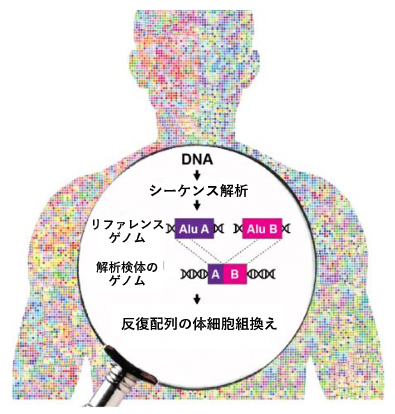2022-07-20 ミシガン大学
 A Polistes fuscatus paper wasp on a flower. Image credit: Elizabeth Tibbetts
A Polistes fuscatus paper wasp on a flower. Image credit: Elizabeth Tibbetts
スズメバチは、視覚刺激や嗅覚刺激(2色の紙片、スズメバチの顔の写真、2種類の化学物質の匂い)のペアが同一か異なるかを区別するように訓練された。1組の刺激には、軽度だが不快な電気ショックを与え、もう1組の刺激には電気ショックを与えなかった。
次に、刺胞動物に新しい刺激(同一または異なる刺激)のペアを与え、「正しい」ペア(安全に関連するペア)を選択して電気ショックを回避する能力をテストした。
その結果、事前に訓練されたハチは、80%以上の確率で正しい選択をすることができたという。この研究成果は、英科学誌『Proceedings of the Royal Society B』に掲載された。
今回の発見は、ハチが同質性と差異という一般的な概念を学習し、それを新しいサンプルや新しいタイプの刺激に適用したことを示している。
<関連情報>
- https://news.umich.edu/u-m-study-paper-wasps-form-abstract-concept-of-same-and-different/
- https://royalsocietypublishing.org/doi/10.1098/rspb.2022.1156
「同一と差異」という抽象的な概念を形成するオオスズメバチ。Paper wasps form abstract concept of ‘same and different’
Chloe Weise,Christian Cely Ortiz and Elizabeth A. Tibbetts
Proceedings of the Royal Society B Published:20 July 2022
DOI:https://doi.org/10.1098/rspb.2022.1156
Abstract
Concept formation requires animals to learn and use abstract rules that transcend the characteristics of specific stimuli. Abstract concepts are often associated with high levels of cognitive sophistication, so there has been much interest in which species can form and use concepts. A key abstract concept is that of sameness and difference, where stimuli are classified as either the same as or different than an original stimulus. Here, we used a simultaneous two-item same-different task to test whether paper wasps (Polistes fuscatus) can learn and apply a same-different concept. We trained wasps by simultaneously presenting pairs of same or different stimuli (e.g. colours). Then, we tested whether wasps could apply the concept to new stimuli of the same type (e.g. new colours) and to new stimulus types (e.g. odours). We show that wasps learned a general concept of sameness or difference and applied it to new samples and types of stimuli. Notably, wasps were able to transfer the learned rules to new stimuli in a different sensory modality. Therefore, P. fuscatus can classify stimuli based on their relationships and apply abstract concepts to novel stimulus types. These results indicate that abstract concept learning may be more widespread than previously thought.
Footnotes
Electronic supplementary material is available online at https://doi.org/10.6084/m9.figshare.c.6080863.


